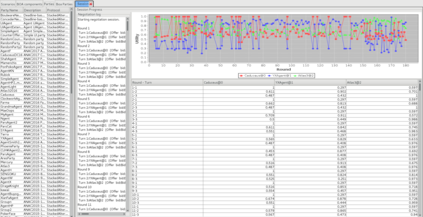In various multi-agent negotiation settings, a negotiator's utility depends, either partially or fully, on the sum of negotiators' utilities (i.e., social welfare). While the need for effective negotiating-agent designs that take into account social welfare has been acknowledged in recent work, and even established as a category in automated negotiating agent competitions, very few designs have been proposed to date. In this paper, we present the design principles and results of an extensive evaluation of agent HerbT+, a negotiating agent aiming to maximize a linear tradeoff between individual and social welfare. Our evaluation framework relies on the automated negotiating agents competition (ANAC) and includes a thorough comparison of performance with the top 15 agents submitted between 2015-2018 based on negotiations involving 63 agents submitted to these competitions. We find that, except for a few minor exceptions, when social-welfare plays a substantial role in the agent's goal function, our agent outperforms all other tested designs.
翻译:在各种多试办谈判环境中,谈判人员的效用部分或完全取决于谈判人员公用事业(即社会福利)的总和。虽然最近的工作承认需要有效的谈判人员设计,考虑到社会福利,甚至在自动谈判人员竞争中将这种设计定为一个类别,但迄今提出的设计很少。在本文件中,我们介绍了对旨在最大限度地实现个人与社会福利之间线性平衡的谈判人员HerbT+的广泛评价的设计原则和结果。我们的评价框架依靠自动谈判人员竞争(ANAC),并且包括彻底比较2015年至2018年期间根据63名谈判人员参加这些竞争的谈判情况提交的前15名人员的业绩。我们发现,除了少数次要例外,当社会福利人员在代理人的目标功能中发挥重要作用时,我们的代理人超越了所有其他经过测试的设计。









